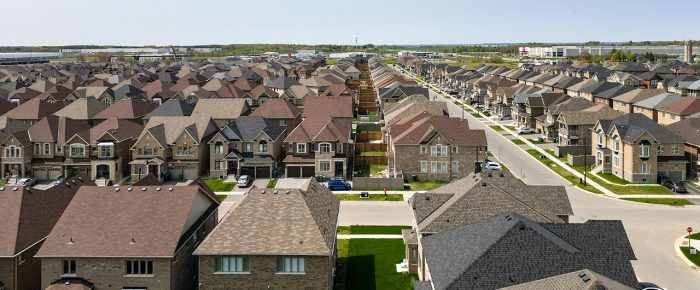
What is a residential mortgage?
A residential mortgage is the most common type of home loan in Canada. It is a loan issued by a lender to a borrower for the purpose of purchasing a residential property; the property serves as collateral for the loan.
Before a lender approves a traditional/residential mortgage, they consider several factors such as the borrower’s credit score, employment history, debt-to-income ratio, and down payment amount. Traditional lenders have strict criteria that may sometimes be difficult to qualify. Certain circumstances may make it more difficult for some to get approved by a traditional lender, like those who are self-employed, for example. Private mortgage lenders are able to offer flexible solutions that help borrowers find the right home.
Private loans can be a useful resource for individuals struggling to qualify for a traditional loan. Unlike traditional loans, private loans are generally designed to meet shorter-term borrowing needs. A private mortgage is often a step to help borrowers qualify for traditional loans in the future with lower interest rates.
Potential advantages of Graysbrook Capital residential mortgage loans:
- They can lend up to 50-75% of the property value.
- They can help, even if the borrower has tarnished credit, or needs to re-establish credit.
- They can consolidate debts to help free up cash.
- They can provide quick access to capital.
- We have no early payout penalties in most provinces.
Potential disadvantages of private mortgage loans:
- They are meant to be short-term (if you don’t have a plan for an exit strategy, they may not be right for you).
- They often have higher interest rates than traditional loans (but they can also be the key to eliminating other higher interest payments).
- They can vary in terms, costs and conditions – your mortgage broker can help you compare your offers.
Residential mortgage loan qualification criteria:
With our private residential mortgage loans, depending on the location, up to 75% of the property value can be approved within minutes, and with much greater flexibility than you’d find at your bank. The main qualification criteria for a residential mortgage loan is equity. Equity can be in the form of cash, investments, or property. Lenders will also consider your credit history and current financial situation when determining whether to approve you for a loan.
Residential mortgage loan interest rates and other costs:
The interest rate on a private mortgage loan is typically higher than the interest rate on a traditional lender’s loan (e.g., a bank). This is because private mortgage loans are higher-risk. Lenders will also charge other fees such as administrative or appraisal fees, which will be outlined in your offer.
I got turned down by a traditional lender, can I still get approved with a private lender?
Private lenders can offer more flexibility, as they don’t need to follow the same strict requirements as a traditional lender. If you have equity (cash, investments, or property), you may qualify, even if turned down by a traditional lender.
What if I have bad credit?
Graysbrook Capital will assess your complete financial health including your home equity when processing your loan application. Credit is not the primary deciding factor leading to loan approval.
How do I apply for a residential mortgage?
Contact us for mortgage broker partner recommendations in Atlantic Canada and Ontario to get started!
How much can I get with a residential mortgage?
The amount you can borrow will depend on the property, your equity and credit history. We also consider your current financial situation when determining the amount you are eligible to borrow.
What happens if I can’t repay my loan?
If you are unable to repay your mortgage, you may be required to sell your collateral to repay the debt. This could put you at risk of losing your home or other assets. Before taking out a mortgage, be sure to consider all of the potential risks and disadvantages.

